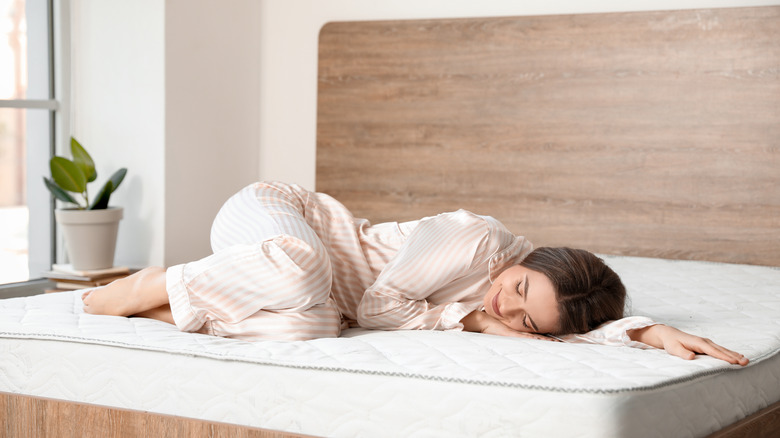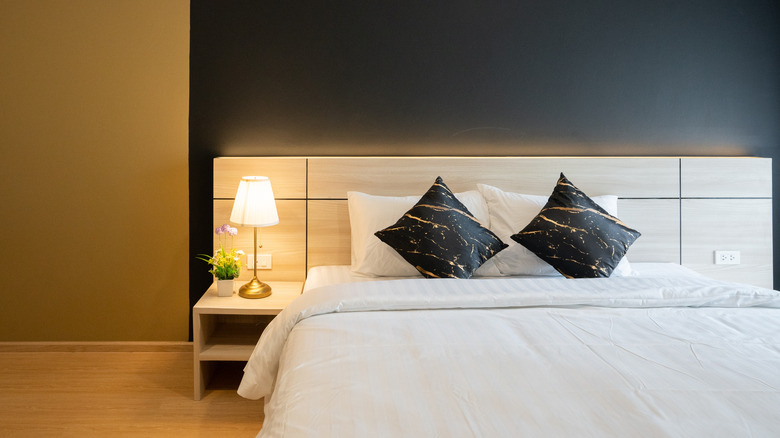Does Cooling Bedding Really Work On Hot Nights?
Waking up covered in sweat is never fun. Sometimes, it can be the result of underlying health issues, as noted by Healthline, but it can also be a matter of your bedding, pajamas, and other environmental factors. If you find yourself waking up with wet hair, pajamas, or sheets, you may be a hot sleeper, which affects between 10% to 41% of people, per Healthline. Once you've confirmed it's not due to a health condition, you may be wondering what you can do to reduce your chances of sleeping hot and sweaty.
In addition to keeping your bedroom cool enough, you will probably want to take a look at your bedding. Many sleep companies, from mattress to pillow and sheet manufacturers, have lines dedicated to helping you sleep cool. But do these cooling bedding materials really help you stay dry during the night? The short answer is: yes! This guide will help you learn what to look for when shopping for stay-cool bedding.
What makes bedding cooling?
While bedding is often advertised as being cooling, what actually makes it better for hot sleepers? The biggest factor is the material used — both its breathability and moisture-wicking properties are key when choosing bedding to keep you at the optimal body temperature.
The Strategist advises that natural fibers like cotton and linen are spectacular for their breathability, which means air can easily pass through the fabric instead of being trapped next to your body. The density of the fiber and weave is also an important factor — heavier materials like sateen can stay too close to the body and trap hot air. If you get hot enough to sweat through your pajamas or sheets, you want fabrics that can handle wicking away moisture. Fabrics that absorb sweat and dry quickly are a must-have if you often have night sweats. These include tencel and bamboo, according to the Sleep Foundation.

